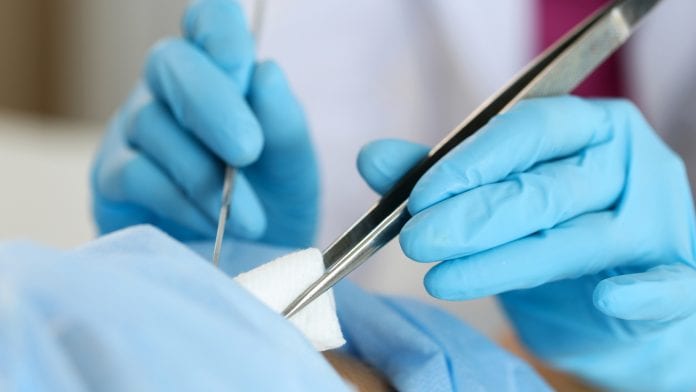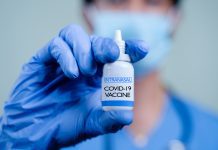
A team of researchers has developed a new material that protects against resistant bacteria, preventing wounds from becoming infected.
The team at Chalmers University of Technology, Sweden, have developed the specially designed hydrogel that works against all types of bacteria, including antibiotic-resistant ones. This development could contribute to tackling the major global health threat of antibiotic resistance.
The results have been published in the journal ACS Biomaterials Science & Engineering.
Tackling antibiotic resistance
The active substance in the new bactericidal material consists of antimicrobial peptides, which are small proteins found naturally in the immune system. Until now, using peptides in medical devices has been unsuccessful as they break down quickly when they encounter bodily fluids such as blood. The researchers have overcome this problem through the development of the nanostructured hydrogel, into which the peptides are permanently bound, creating a protective environment.
Martin Andersson, research leader for the study and Professor at the Department of Chemistry and Chemical Engineering at Chalmers University of Technology, said: “After testing our new hydrogel on different types of bacteria, we observed a high level of effectiveness, including against those which have become resistant to antibiotics.
“With these types of peptides, there is a very low risk for bacteria to develop resistance against them, since they only affect the outermost membrane of the bacteria. That is perhaps the foremost reason why they are so interesting to work with.”
“The material is very promising. It is harmless to the body’s own cells and gentle on the skin. In our measurements, the protective effect of the hydrogel on the antimicrobial peptides is clear – the peptides degrade much slower when they are bound to it,” added Edvin Blomstrand, doctoral student at the Department of Chemistry and Chemical Engineering at Chalmers, and one of the main authors of the article.
Before this material can benefit hospitals and patients, clinical studies are needed, which are ongoing.










